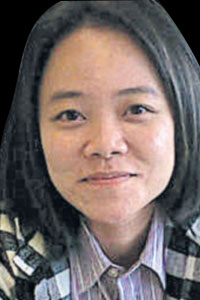
Images of students being bullied in school resurfaced following the worldwide premiere of The Glory, a 16-episode series which shines a spotlight on bullying, the dark side of wealth and power, as well as the importance of good parenting.
Starring world-renowned South Korean superstars Song Hye-kyo (Descendants Of The Sun, Full House) and Lee Do-hyun (Hotel Del Luna, Youth Of May) among others, the long-awaited second part of The Glory was released on Netflix just last week.
The series tells the story of high school student Moon Dong-eun who becomes a target of school violence only because she is poor and underprivileged. Dong-eun is always bullied by her classmate Park Yeon-jin and her gang. Apart from psychological and sexual assault, the bullies burn Dong-eun's body with a hot hair curler in a locked school gym which no one sees or hears. Influenced by money, teachers -- and even Dong-eun's mother -- turn a blind eye to these matters.
Left with nothing but scars all over her body, Dong-eun decides to drop out of school. However, the wounds in her mind cut deeper than those on her skin. She plans to seek revenge.
The school dropout works different jobs -- from a waitress at a kimbab restaurant to a factory worker -- for several years. While working to save money, Dong-eun also enrols in non-formal education. She manages to get into college and eventually becomes an elementary school teacher -- the school where Yeon-jin's beloved daughter is now in kindergarten. The game of revenge is now on.
Despite being fiction, The Glory is a reminder that violence in school is still real and that it's not just kids teasing or playing with one another. If left unattended, school bullying leads to emotional scars that last a lifetime -- or even death.
Sadly, it turns out that the extreme bullying scene in which Dong-eun is burnt by a hot curling iron is partly based on a real-life event. In 2020, 22-year-old man Park received a call from his friends asking him to celebrate his birthday with them. After that, he was dragged to a vacant lot, tied up to a chair with his face covered with a hood. The friends sprayed gasoline all over his body and set off fireworks on his knees. When the fireworks exploded, his entire body was on fire.
"When I told them 'please call 119', the perpetrators said this place is gloomy so the ambulance can't come easily," Park told the Seoul Broadcasting System.
Park suffered third-degree burns on 40% of his body. His family sought legal action, only to be forced to do a monetary settlement. In the end, the perpetrators got away with just probation.
In Thailand, school bullying is also prevalent and is reported in the media all the time. Last month, a 7th-grader from Chachoengsao was reportedly bullied by her schoolmates who recorded a video clip to blackmail her. Her father reported the incident to the homeroom teacher who dismissed the case, citing that it was just children's fights.
Also last month, a 16-year-old student in a Nonthaburi school was bullied by over 20 other students. He got injured in the face and his head was bleeding. His teeth were broken and there were bruises all over his body. Local police also dismissed the case.
The Department of Mental Health revealed in 2018 that an estimated 600,000 Thai students were bullied in school, an equivalent to 40% of all students -- the second highest only after Japan.
A survey conducted by the Network of Lawyers for Children and Youth among kids aged 10 to 15 from 15 schools found that in 2020 that almost 92% of children were bullied while around 69% thought bullying is a form of violence.
Around 43% of surveyed students reported having thought of revenge; 26% said they suffered stress; 18% lost concentration for learning; 15% didn't want to go to school; another 15% said they avoided socialisation; and 13% fell prey to depression.
Coupled with the resurfacing issue of school violence in The Glory, the aforementioned statistics are proof that school bullying is a real social issue that needs to be addressed urgently, not just in Thailand but around the world. There is nothing glorious about school bullying and it is time for teachers, the authorities and parents to stop turning a blind eye to the issue.
Most importantly, support should be given to the bullied. Mental and emotional support must be provided to the victims. Students should be made aware that being harassed is nothing to be ashamed of. The perpetrators deserve to be brought to justice and the law should be implemented seriously among those who bully others regardless of age.
Just like Dong-eun, lots of students choose revenge as a way out of this problem. But after all, an eye for an eye is merely just a quick fix.
Arusa Pisuthipan is the editor of the Life section of the Bangkok Post.
